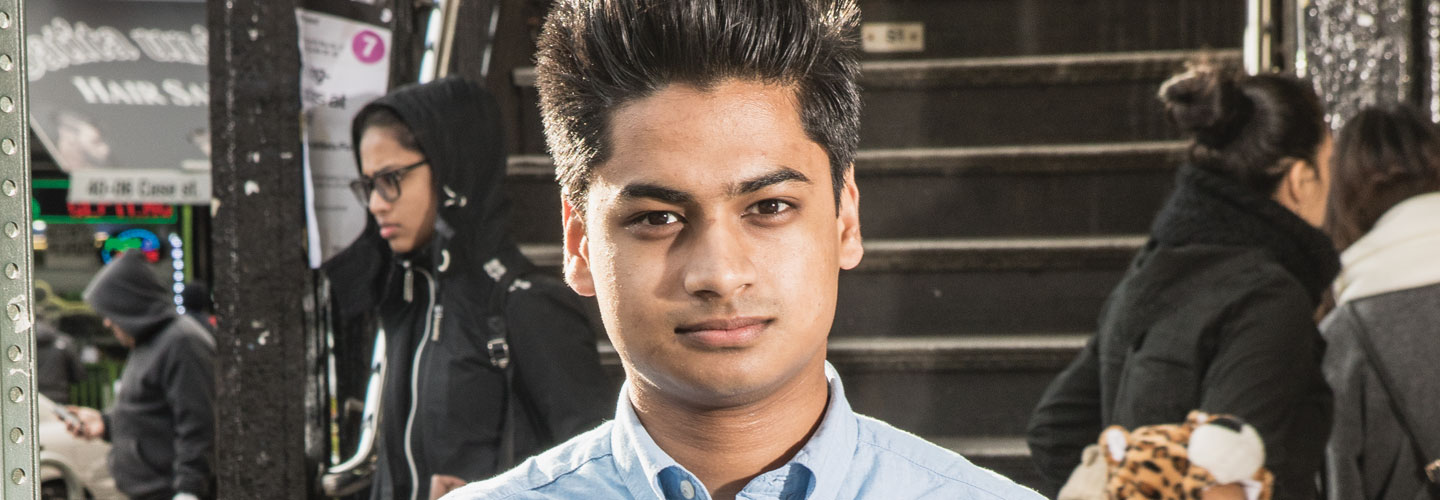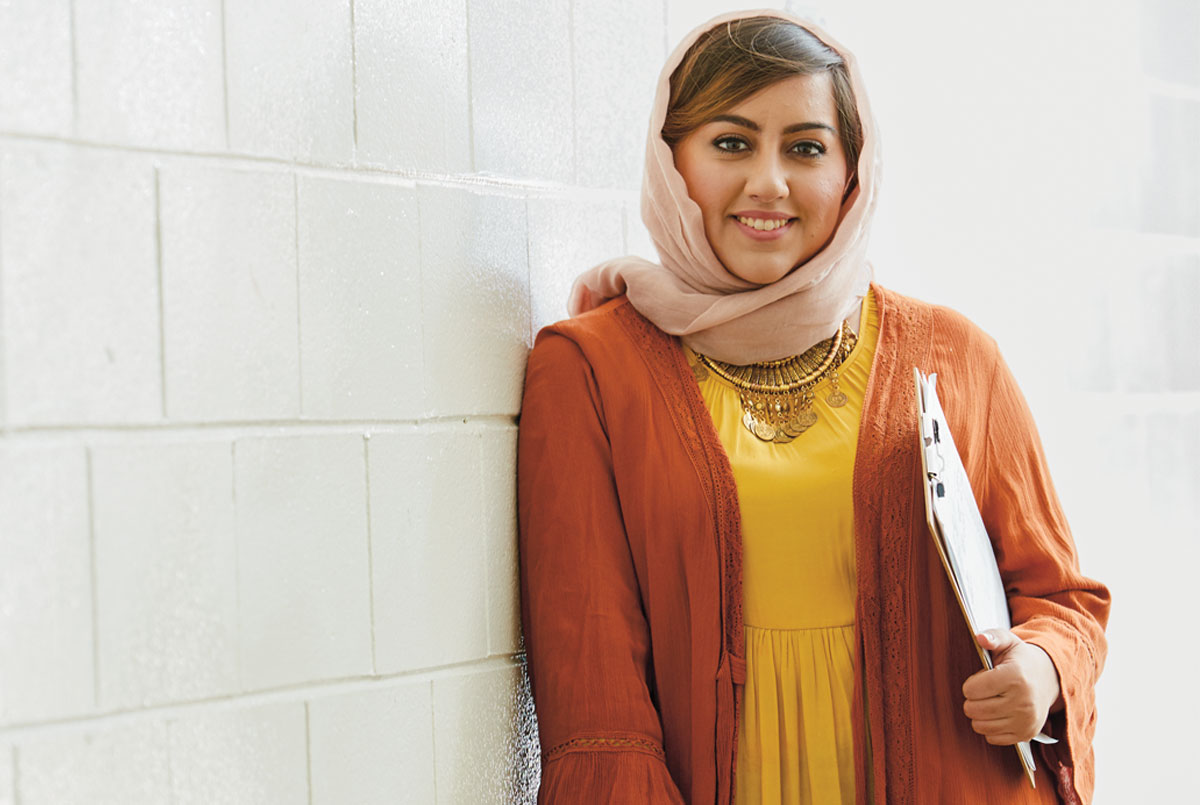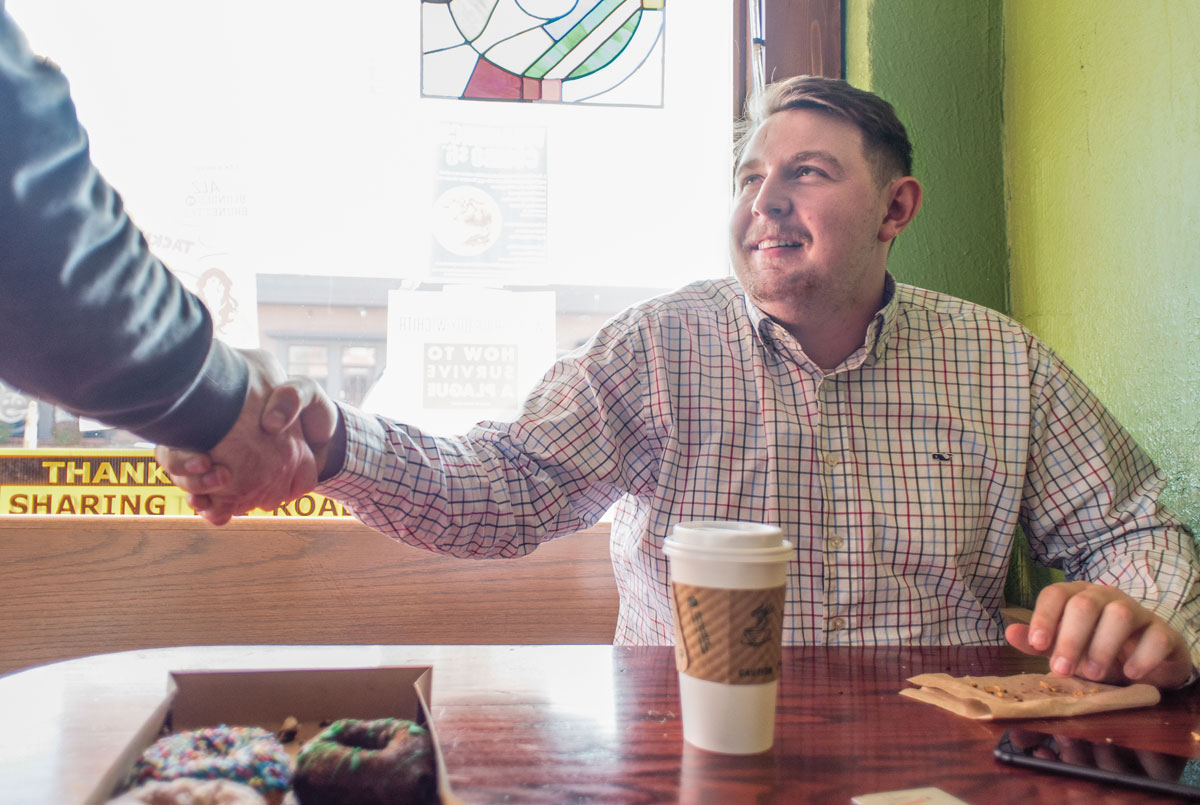
Name: Tahseen Chowdhury
Age: 17
Hometown: New York, New York
Running for: New York State Senate
Why We’re Running for Office
These young people are campaigning to win spots in their local government. Find out why they’ve decided to get involved.
On a recent morning, Bushra Amiwala cheerfully approached shoppers at a supermarket in Chicago, Illinois. “Do you have time for a quick signature?” she asked, before introducing herself. Bushra and a slew of young volunteers were collecting signatures to get her name on the ballot for the Cook County Board of Commissioners, the legislative body in charge of the county’s laws and finances.
In total, Bushra, a sophomore at DePaul University in Chicago, received 1,300 signatures—well over the 380 needed to secure her spot on the ballot. In March, she’ll go up against a four-term

Name: Bushra Amiwala
Age: 20
Hometown: Skokie, Illinois
Running for: Cook County Board of Commissioners

Bushra, whose parents emigrated from Pakistan just before she was born, says she’s running to be an advocate for the middle class and small businesses.
Many of her volunteers are her age and are working on their first campaign. “We should have a voice as well,” she says. “We are all desperate to be heard.”
Across the country, young people like Bushra are getting involved in politics, whether by participating in a protest, donating to a cause, or running for office. In Kansas alone, five teens are campaigning to become governor. Another teen, eighth-grader Ethan Sonneborn, 13, is running for governor of Vermont. (Kansas and Vermont are the only states with no minimum age requirement to serve as governor.) In the past year, more than 400 people under age 25 have contacted Run for Something—a liberal group that recruits young candidates—about running for office.
Though seasoned politicians may be skeptical of teens’ abilities—“Maybe they ought to run for student council instead,” suggested one Kansas lawmaker—young people believe they have something to bring to the table.
And they’re right, says Svante Myrick. At age 24, he was elected the youngest-ever mayor of Ithaca, New York, in 2011. As Svante recently told Time, “The youngest generation is pretty sure that we can do it better than the folks that have been doing it for a long time.”
Thinking Locally
When young people run for office, they tend to seek positions at the local level, which have fewer age restrictions. Candidates as young as 18 can apply for many such jobs—on the school board, on the city council, or as mayor. (At the federal level, candidates must be at least 35 to become president, at least 30 to serve in the U.S. Senate, and at least 25 to sit in the U.S. House of Representatives. But the average ages of people holding those offices generally skew much older—currently 62 for a senator and 59 for a representative.)
Plus, holding local office gives teens a chance to affect policy on the issues they care most about, including education.
“A lot of important government activity happens at the local level,” says William Howell, a political science professor at the University of Chicago.
“The youngest generation is pretty sure that we can do it better than the folks that have been doing it for a long time.”
A desire to effect change is what motivated 17-year-old Tahseen Chowdhury, a senior at Stuyvesant High School in New York City, to run for the state senate. Tahseen, who will turn 18 before the Democratic primary this fall, wants to institute a tuition assistance program for young undocumented immigrants who are struggling to pay for college.
Win or lose, Tahseen says he hopes to inspire other young people to get involved in politics—and to vote. Turnout rates among 18- to 29-year-olds are historically low, especially for local elections. In Tahseen’s hometown of New York City, for example, less than 20 percent turned out for the recent mayoral election. That worries Tahseen, who says young people “have to make sure that we’re doing our best to set up our future.”
Time to Be Teens
Young candidates have many things in common with their older counterparts, but a few things set them apart. One is the ease they have in using social media as a campaign tool.

Name: Ethan Randleas
Age: 18
Hometown: Wichita, Kansas
Running for: Governor of Kansas

Ethan Randleas, a senior at Heights High School in Wichita who’s running for the Republican nomination for governor of Kansas, hosts campaign events via Facebook Live. He also writes about his positions (such as doing away with certain taxes) on Twitter. Bushra, meanwhile, regularly posts photos of her young volunteers hard at work, and Tahseen’s website rivals those of candidates three times his age.
And although these young candidates are fighting for serious causes, they’re not sacrificing typical teen experiences. For Ethan, that means making time to play basketball and hang out with his friends in Wichita. “I’m still being a normal kid,” he says. “I’m just also running for governor.”
With reporting by Lucia De Stefani
CORE QUESTION: What might motivate someone to run for office?


